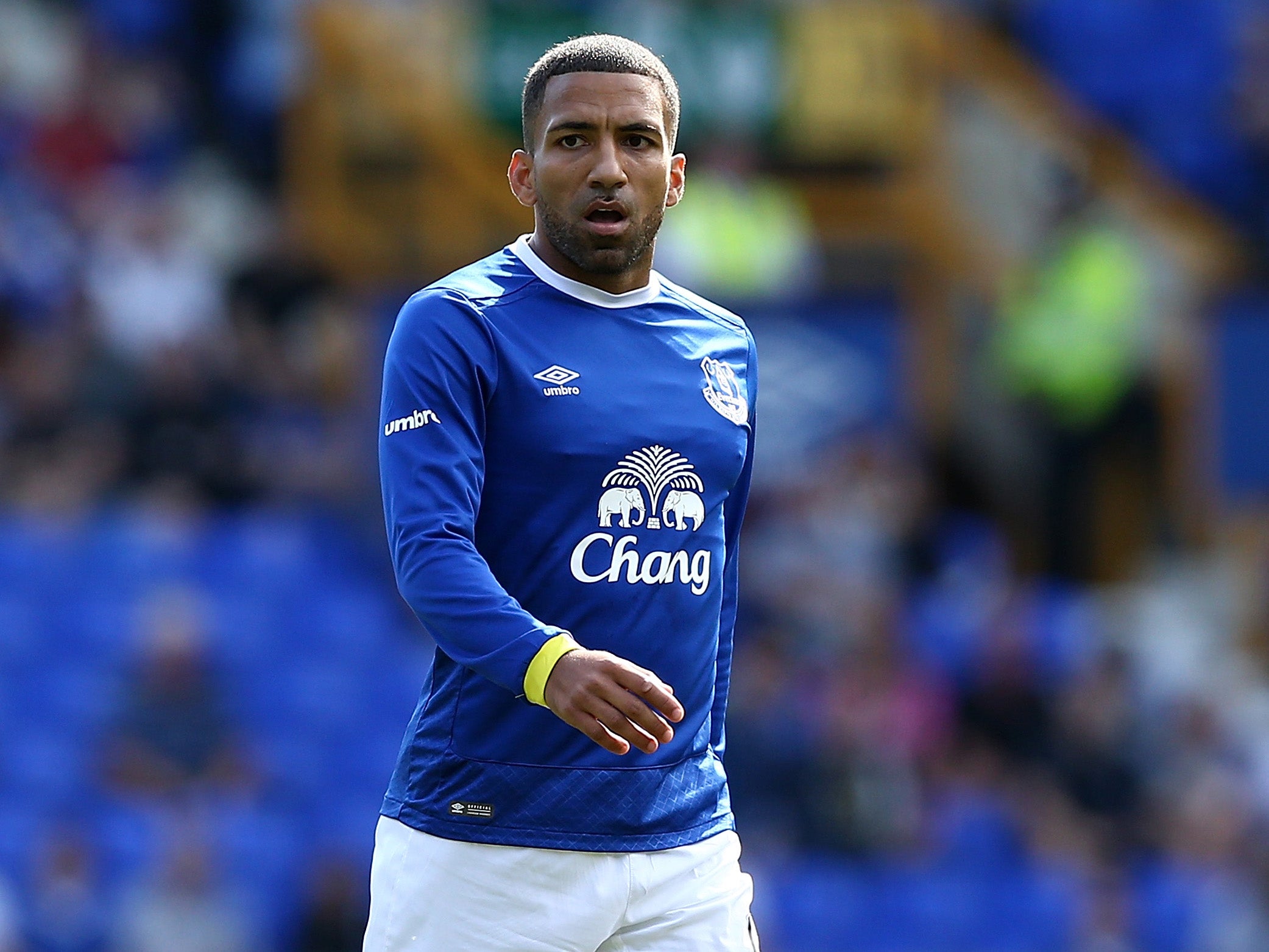Football reaches out to Aaron Lennon, who's faced the burden of expectation since he was 12 years old
He was held under the Mental Health Act and is receiving care for a stress-related illness

A former footballer who struggled with mental health described on Wednesday the sleepless nights feeling “trapped” by peer pressure to stick it out in a sport which, in the darker moments, seemed to be burying him alive. It is easy to see how Aaron Lennon might feel that way.
The 30-year-old Everton player, who was detained by police under the Mental Health Act for his own protection on Sunday and is receiving care for a stress-related illness, has been dealing with a burden of expectation for 18 years. He was a mere 12 years old at Leeds United when the club was “just waiting for him to play for the first team,” says one insider who knew him from those days.
Anything but his trajectory to anticipated stardom seemed incidental detail after he had left the streets of Leeds’ impoverished Chapeltown district behind and demonstrated incredible pace. “A superstar at 12,” is how the source described the way he was viewed there. Even school seemed inconsequential, though the club worked hard to correct that. Lennon was barely a teenager when he seemed to realise how famous he was going to be.
Sure enough, he became the youngest player in Premier League history aged 16 years and 129 days, in 2003, but the game has chewed him up and spat him out rapidly and with little dignity in the past few years. An incident around the time of Tottenham Hotspur’s 2014 Christmas party proved to be the end between Lennon and manager Mauricio Pochettino, who sent him to Everton on loan and sent him to train with the under-21s with no squad number on his return to North London. Then Pochettino sent him back permanently to Everton, where he has disappeared down the pecking order under Ronald Koeman. Lennon has played 17 minutes of football since January 2.
There is no telling whether these difficulties have contributed in the slightest way to Sunday’s turn of events, which are not thought to have come as a total surprise to some who know Lennon. Stress-related illness strikes with brutal unpredictability. But Lennon has certainly not been one of those players who has brushed away the vagaries of the game. He has always hated being out of teams. He is more inclined than certain players to “think what will happen next," says the source from his early career. "The real thinkers deal with the pressure less well.”
The scrutiny is far more brutal now than it was on his way up. Social media means players are now “directly accessible - to be told how s*** they are,” says the source. “They can’t respond as they are representing the club and they can’t complain because they are earning thousands of pounds a week. If a top player complains they just get: ‘How can you be stressed on £30,000-a-week? As if the salary makes the slightest difference to their state of mind. The general population would find it incredibly difficult to cope with this.”
Helping players is difficult because many fear a manager finding out. A former player liaison officer at one of the Premier League’s most enlightened clubs describes how his own department and the physiotherapists identified one player’s possible mental health problem, and took a collective decision to inform the team doctor, who had the club’s respected, full-time psychologist to draw upon. “But the challenge is that the player won’t then accept the help the club are offering as they think the medical staff will run and tell the manager,” says the source.
This was the experience of James Scowcroft, the former Ipswich Town, Crystal Palace and England under-21 international, who wrestled with mental health problems and consulted four mental health professionals in a 16-year career which ended in 2012. Only one of the four – the late John Syer, who worked with Tottenham for a number of years – actually made any difference.
“At times, you hate the game but you feel trapped with no way out of it,” says Scowcroft. “You’re thinking: ‘I can’t give this up because people say I’m the luckiest man alive. But you’re expected to perform every day of your life, in matches and training. I remember thinking pre-season; ‘I’ve got 11 months of this.”
There is a growing view within football that players’ agencies have a far bigger role to play in providing access to psychology and psychiatry services, preventing players facing the stigma of discussing mental health with clubs. The Professional Footballers’ Association’s head of welfare Michael Bennett said the organisation was “aware that players don’t want to access club help because this is still considered taboo.” The union offers an education programme to show players what “health and well-being looks like for players who have nowhere to go.”
That might seem a distance off for Lennon, whose parents and brother provide the same strong family support he has always had, yet who is about to enter the last year of his Everton contract. “May is the time when many of them are thinking: ‘What am I doing next?’” says the source who knew Lennon at Leeds. “As soon as you sign one contract you are earning for your next.”
Subscribe to Independent Premium to bookmark this article
Want to bookmark your favourite articles and stories to read or reference later? Start your Independent Premium subscription today.

Join our commenting forum
Join thought-provoking conversations, follow other Independent readers and see their replies